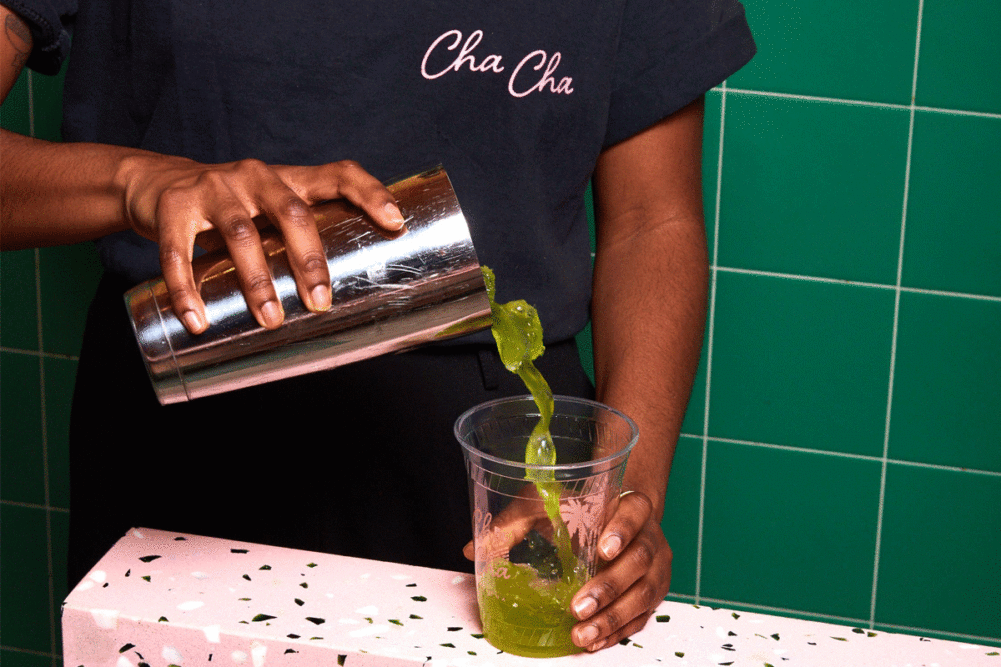NEW YORK — A chain of cafes selling green tea beverages is rethinking its online offerings, expanding its physical footprint and adding coffee to its menu.
Cha Cha Matcha operates seven locations in New York and Los Angeles. It offers a range of health-forward beverages, including hand-whisked matcha water, matcha lattes and homemade matcha chai blends. Other menu items combine matcha with trendy ingredients like blue algae, chaga mushrooms, turmeric, ginger and more. Top-selling items include a purple drink made with ube, lavender and CBD and a latte featuring ashwagandha and collagen.
“A lot of cafes and restaurants look at what’s happening in the food space for the latest trends, but we tend to look at what’s happening in the health and beauty space,” said Jay Gujjar, chief executive officer of Cha Cha Matcha. “There’s something on the menu for everyone, from matcha purists all the way to tourists.”
Growing interest in matcha has helped the company steadily build its fanbase since launching in 2016. It plans to double the size of its physical footprint, elevate its store design and enter into international markets in the coming months. It also is revamping its direct-to-consumer business and expanding cafe menus with new coffee products.
“We know that we can’t open new stores nearly as quickly as people want, so the DTC part is important,” Mr. Gujjar said. “We’re investing heavily in making sure customers can take the matcha experience inside the home.”
A matcha kit featuring the same green tea leaves used in the cafes will launch later this year and will serve as the springboard for the company’s new DTC site.
“We’ve been doing a lot of R&D to figure out how we can get items like the purple drink made in your house,” Mr. Gujjar said. “Think of it like MUDWTR, where you have an elixir in powder form with dehydrated vegetables and dehydrated fruits. You can get dehydrated ube, lavender and oat milk and mix it with water so it becomes a latte.”
Focusing on DTC while expanding into coffee will help the brand become a regular part of consumers’ routines, he added.
“We’ve heard our customers say they prefer higher caffeine content by way of a cup of coffee in the morning, and then as the day goes on, they transition to products that have less caffeine, like tea or matcha,” Mr. Gujjar said. “Caffeine is a fixture that becomes a ritual for people, and given the shift toward hybrid work and people spending more time at home, it’s important that we remain part of that ritual. When you want an afternoon pick-me-up but you’re not in the office or near a store, you can recreate that matcha experience by making it yourself."





